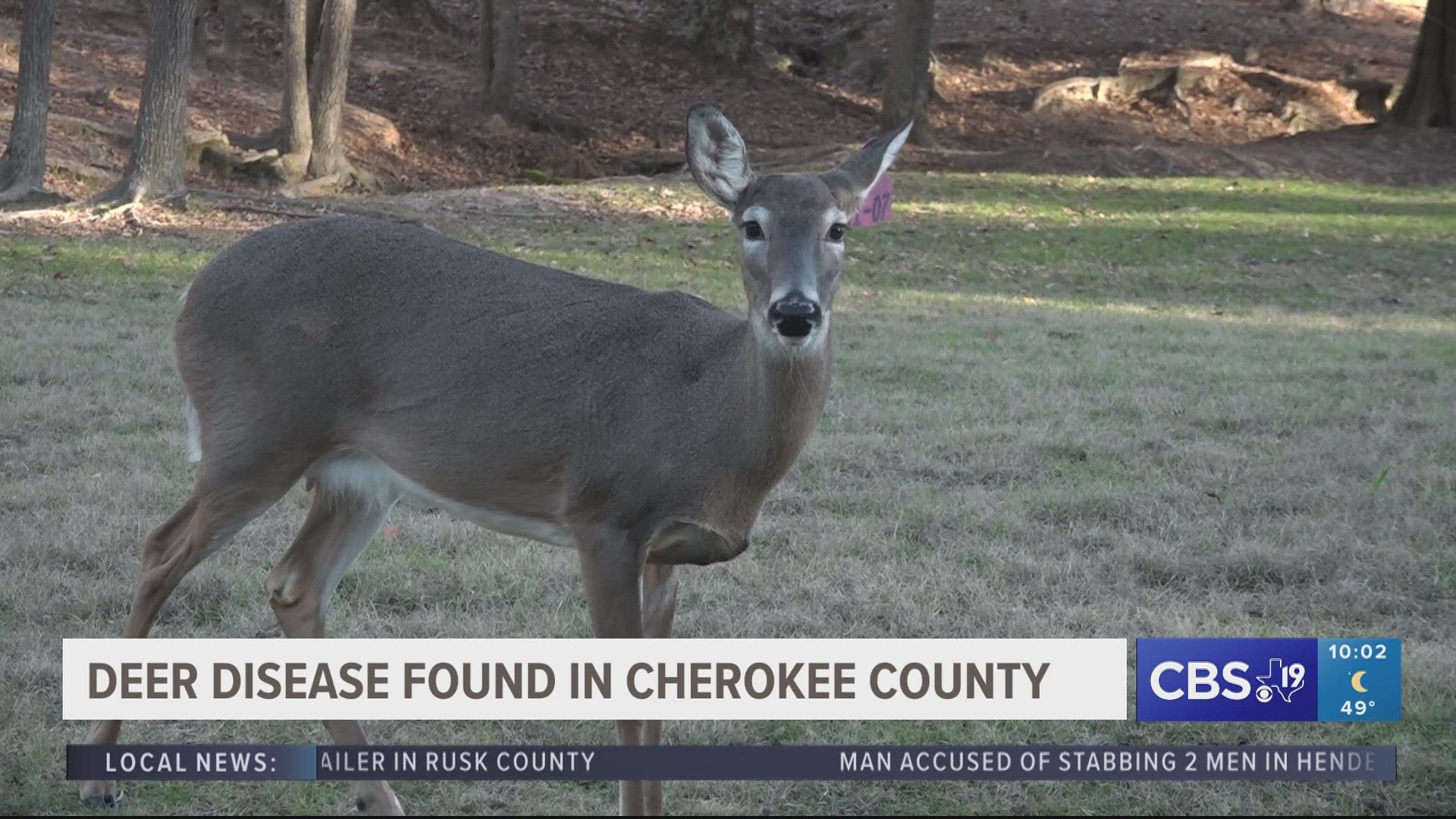CHEROKEE COUNTY, Texas — East Texas hunters have been enjoying deer hunting season, but a disease among the species has made an appearance in Cherokee County and has some concerned. Chronic wasting disease impacts the neurological system in deer species and was first detected in the state in 2012.
It has since been showing up in breeding facilities and on Nov. 17 a positive test was found in a facility southeast of Jacksonville. Texas Parks & Wildlife Department experts hosted a public meeting in the city to spread the word about the dangers this could pose to other animals.
TPWD reported that a 4-year-old buck tested positive for the disease and officials said there’s no major threat that comes with this finding. Their main goal during the Monday meeting at the Jacksonville Public Library was to inform neighboring farms and hunters to ensure the disease doesn’t spread.
Jody Phillips, owner of P Bar Whitetails in Bullard and the president of the Texas Deer Association, said the disease is comparable to Alzheimer's disease in humans. Her farm's goal is to build a deer herd that is resistant to CWD.
"There's not been very many deer actually recorded to die from CWD," Phillips said. "They normally die of some other natural cause."
Philips said having this town hall with TPWD so close to the detection of the case is very important.
"I think the reason for the town hall today is probably more about the surveillance zone," Phillips said. "That is the two mile radius around that specific facility and explaining to people what it's about."
TPWD was handing out a map of the zone they are monitoring which includes several county roads off of Texas Highway 204 southeast of Jacksonville. Currently, Ryan Schoeneberg, big game specialist with TPWD, said they are hoping to collect samples from deer in those surrounding properties.
"Right now, we only have one positive in the 4-year-old deer in that deer breeding facility contained within a high fence," Schoeneberg said. "We want to make sure that that is the only positive that we have."
Schoeneberg said the visit's goal is to ensure the disease is isolated because once it spreads, there is no getting rid of it.
"We got the hunters and landowners that are trying to learn more about the disease and trying to understand what their role and responsibilities are for it," Schoeneberg said.
Phillips said as a deer farm owner she’s going the extra mile in ensuring the game she sells to her customers are resistant to the disease.
"What we've done is we genetically test all of our deer for their 96 codon and breeding value," Phillips said. "It's been shown that the s codon is resistant to CWD. So what we're doing is we're breeding more durable deer."
Schoeneberg said it is possible to breed deer to be resistant to the disease but that it does not mean they can't still get it.
"It just means that when they get it they live a little bit longer with it," Schoeneberg said. "We don't know what these genetics of the deer are, especially the deer in the wild and so we're trying to make sure that we test every deer as many days as we can get our hands on for CWD."
If you happen to live and own deer in that southeastern region outside of Jacksonville, then TPWD wants to hear from the public.
They also say that this disease only impacts deer and similar species. It does not affect humans or carry on to the meat, which means even if people hunt a deer with CWD it is still safe to consume.

